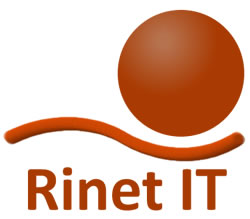Are you just starting out with SEO? Never heard of it? Don’t worry, you’re not alone. SEO is essentially how businesses can improve their search engine rankings and get seen by more potential customers. The perfect SEO strategy looks different for different businesses so it can be tricky to know where to focus your efforts. This guide will help you get your bearings and understand the basics of SEO.
So what is SEO?
"SEO" is an acronym for "search engine optimisation". It is essentially the process of getting website traffic from search engine results. This can be done using free or paid techniques and the main aim is to improve the position of your website in search engine results pages (SERPS).
“The higher your business is on search engines like Google, the more people that will see your website and be more likely to choose you” says the skip tracing and data specialists from Acceleon, “More than 90% of Google users don't go past the first page of results so optimising your SEO strategy to get ranking on the first page is so crucial for success”.
It would be impossible for you to rank for every keyword related to your product or service so it is necessary to select some relevant keywords that your prospects will be using to search.
This could mean focusing on your local areas where your ideal customers live. For example; instead of ranking for "Dog Groomer", you may rank for "Dog Groomer Parramatta".

How do search engines really work?
Most search engines, like Google, work by sending out "spiders” or "bots" that crawl the internet and index websites. These spiders follow links from one website to another, and they index the content they find on each site. When you do a search on a particular keyword or phrase, the search engine looks through its index to find websites that contain that keyword or phrase. The search engine then ranks these websites according to how relevant they are to the keyword or phrase you searched for.
“There are other factors that can affect how your website is ranked by a search engine, such as the number of inbound links or links from other websites pointing to your website and the popularity of your website” says sunglasses e-commerce mogul Ralph from Red Bull Spect, “But generally speaking, the more relevant your website is to the keyword or phrase being searched for, the higher it will be ranked in the search results”.
Of course, all of this happens in a fraction of a second! When you do a search on Google, you're not actually talking to Google directly. Instead, you're using a piece of software called a "browser" (like Chrome or Firefox) to send your search request to Google's servers. Then, Google's servers use their algorithms to find websites that match your search request and send those results back to your browser. All of this happens so quickly that you don't even notice it!
What is a domain ranking?
Domain ranking is a metric that measures the relative popularity of a website or domain within a given industry or niche. It is often used as a measure of a site's influence or importance, and is one of several factors that can be used to determine a website's SEO potential. Domain ranking is also sometimes referred to as domain authority or domain score.
“Domain ranking is based on a number of factors, including the age of the domain, the number and quality of inbound links, the popularity of the keywords associated with the site, and the site's overall traffic levels” explains e-commerce expert Jana Shen, who has built her online lash empire using SEO optimisation.
The higher a site's domain ranking, the more likely it is to rank well in search engine results pages for relevant keywords. A domain ranking varies from 0-100 with 100 being the best. To find out a domain ranking you can use websites like AH Refs or SEM Rush.
Paid vs Organic (Free)
The debate between paid and organic search is one that has been around for quite some time. Both have their pros and cons, but which one is right for your business?
Paid search, also known as pay-per-click (PPC), is a form of advertising where businesses pay to have their ads displayed at the top of search engine results pages (SERPs). This gives them an immediate boost in visibility, which can lead to more traffic and conversions.
Organic search, on the other hand, is the process of earning traffic through unpaid or “free” listings in SERPs. This can be done by optimising your website and content for specific keywords that users are searching for.
Paid Search
Pros:
- You can get immediate results.
- You have more control over your ad campaigns.
- You can target specific keywords and demographics.
- You can track your results and ROI.
Cons:
- It can be expensive, especially if you’re in a competitive industry.
- You need to continuously monitor your campaigns to ensure they’re effective.
- There is a risk of click fraud, which is when people click on ads without being interested in the product or service being offered. This can be very costly for a business that is paying per click.
Organic Search
Pros:
- It’s free (or relatively low-cost).
- Once you rank well, you tend to stay there for a while as long as you maintain your SEO efforts.
- Visitors who come from organic searches are usually more qualified leads since they’re actively searching for your product or service.
- Organic traffic can increase over time, while paid traffic generally decreases once you stop paying for it.
Cons:
- It can take a long time to see results, especially if you’re in a competitive industry.
- You need to continuously create new content and optimise your website to maintain your ranking.
- You have less control over your ranking since you’re at the mercy of the search algorithms.
So, which one is right for you? It really depends on your business goals and budget. If you need quick results and are willing to pay for it, paid search may be a good option. However, if you want to build long-term organic traffic, organic search is the way to go.

The 3 SEO Keys
Technical Optimisation, On-Page Optimisation,and Off-Page Optimisation are the three pillars of SEO. Each one is important in its own right, but together they form the solid foundation necessary for a successful SEO campaign.
Technical Optimisation deals with the underlying code of your website. Making sure that your site is well-coded and free of errors is essential for good rankings.
On-Page Optimisation is all about making sure that your content is relevant and keyword-rich. Creating compelling and informative content is the key to success here.
Off-Page Optimisation encompasses all the activities that you do outside of your website to promote it. This includes things like link building and social media engagement.
All three of these pillars are essential for a successful SEO campaign. By focusing on each one, you can create a solid foundation that will help you achieve your goals.
Featured Image: Photo by FreeBoilerGrants from Pexels
